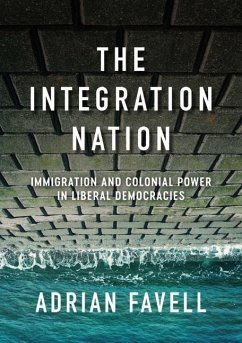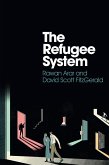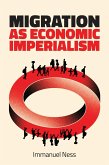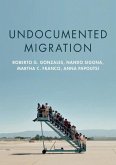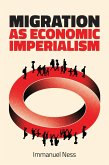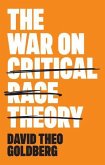The notion of 'immigrant integration' is used everywhere - by politicians, policy makers, journalists and researchers - as an all-encompassing framework for rebuilding 'unity from diversity' after large-scale immigration. Promising a progressive middle way between backward-looking ideas of assimilation and the alleged fragmentation of multiculturalism, 'integration' has become the default concept for states scrambling to deal with global refugee management and the persistence of racial disadvantage.
Yet 'integration' is the continuance of a long-standing colonial development paradigm. It is how majority-white liberal democracies absorb and benefit from mass migration while maintaining a hierarchy of race and nationality - and the global inequalities it sustains. Immigrant integration sits at the heart of the neo-liberal racial capitalism of recent decades, in which tight control of nation-building and bordering selectively enables some citizens to enjoy the mobilities of a globally integrating world, as other populations are left behind and locked out.
Subjecting research and policy on immigrant integration to theoretical scrutiny, The Integration Nation offers a fundamental rethink of a core concept in migration, ethnic and racial studies in the light of the challenge posed by decolonial theory and movements.
Hinweis: Dieser Artikel kann nur an eine deutsche Lieferadresse ausgeliefert werden.
Yet 'integration' is the continuance of a long-standing colonial development paradigm. It is how majority-white liberal democracies absorb and benefit from mass migration while maintaining a hierarchy of race and nationality - and the global inequalities it sustains. Immigrant integration sits at the heart of the neo-liberal racial capitalism of recent decades, in which tight control of nation-building and bordering selectively enables some citizens to enjoy the mobilities of a globally integrating world, as other populations are left behind and locked out.
Subjecting research and policy on immigrant integration to theoretical scrutiny, The Integration Nation offers a fundamental rethink of a core concept in migration, ethnic and racial studies in the light of the challenge posed by decolonial theory and movements.
Hinweis: Dieser Artikel kann nur an eine deutsche Lieferadresse ausgeliefert werden.
"Written by the inimitable Adrian Favell, this work of brilliance is one of the most stimulating books on a migration-related topic that I have read in a long time."
Roger Waldinger, University of California, Los Angeles
"Favell offers a biting critique of 'immigrant integration' as policy, logic and doxa. He powerfully points to the ways this seemingly common-sense concept underpins nationalist, racist and colonialist practices. Our views on the concept will never be the same again."
Steven Vertovec, Max Planck Institute for the Study of Religious and Ethnic Diversity
"Adrian Favell has presented a pointed synopsis, analysis and critique of the integration paradigm [...] Favell's book is an important contribution to a reflexive examination of one's own production of knowledge."
BEHEMOTH A Journal on Civilisation
"Favell presents nothing less than a social theory of how and why Integration has been constituted, historically and conceptually, as a distinctive feature of liberal democracies and modern development."
Janine Dahinden, Ethnic and Racial Studies
"The Integration Nation is a provocative book. Its goal is to push the reader by challenging some core, foundational constructs [....] In this provocation, it succeeds in the extreme."
Sara Wallace Goodman, Ethnic and Racial Studies
"Adrian Favell achieves in The Integration Nation not only an important and informative discussion of the history of integration policies in the United States and Europe, but also a powerful and illuminating critique of the underpinning coloniality inherent in a focus on integration in policy making. The book [...] should be required reading for all those interested in questions of bordering, statehood, and migration, particularly those looking to understand the logics underpinning policies intended to maintain capitalism and the nation-state."
International Migration Review
Roger Waldinger, University of California, Los Angeles
"Favell offers a biting critique of 'immigrant integration' as policy, logic and doxa. He powerfully points to the ways this seemingly common-sense concept underpins nationalist, racist and colonialist practices. Our views on the concept will never be the same again."
Steven Vertovec, Max Planck Institute for the Study of Religious and Ethnic Diversity
"Adrian Favell has presented a pointed synopsis, analysis and critique of the integration paradigm [...] Favell's book is an important contribution to a reflexive examination of one's own production of knowledge."
BEHEMOTH A Journal on Civilisation
"Favell presents nothing less than a social theory of how and why Integration has been constituted, historically and conceptually, as a distinctive feature of liberal democracies and modern development."
Janine Dahinden, Ethnic and Racial Studies
"The Integration Nation is a provocative book. Its goal is to push the reader by challenging some core, foundational constructs [....] In this provocation, it succeeds in the extreme."
Sara Wallace Goodman, Ethnic and Racial Studies
"Adrian Favell achieves in The Integration Nation not only an important and informative discussion of the history of integration policies in the United States and Europe, but also a powerful and illuminating critique of the underpinning coloniality inherent in a focus on integration in policy making. The book [...] should be required reading for all those interested in questions of bordering, statehood, and migration, particularly those looking to understand the logics underpinning policies intended to maintain capitalism and the nation-state."
International Migration Review

